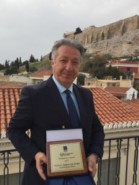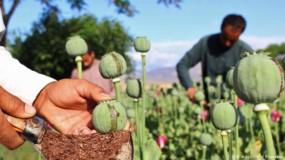Posted on 06 Aug 2013
In May, Barclays Bank announced it would be withdrawing banking services from 250 money transfer services, including a number that provided remittance services to Somalia and Somaliland. This was the last western bank serving Somalia. Barclay’s rational for the service termination revolved around the weak internal controls against money laundering and terrorist finance many of the businesses reportedly had.
In reality, it is more likely that it was a fear of risk that motivated Barclays to act. Over the last decade, anti-money laundering regulations have become increasingly strict. In recent years, financial regulators have moved aggressively against banks handling “dirty money”, often levying massive fines for non-compliance. The $1.9 billion settlement HSBC reached with the U.S. this August, has prompted an increasingly risk averse banking community to minimize their exposure to businesses deemed to be potential money laundering and terrorist finance threats.
Anti-money laundering (AML) efforts are a tricky balancing act for banks. At a base level, AML efforts necessitate that exercise due diligence in providing banking services and implement “know your customer” (KYC) rules. The challenge for many remittance services is that many users, and especially recipients, do not possess the official identification necessary to meet KYC requirements. Being unable to guarantee that those who engage in remittance activities via their banking partners are not laundering money or funding terrorists, banks have opted for the extreme option and excised them from their banking systems. A report by Thompson Reuters issued this month offers a pragmatic, risk-based approach to KYC requirements.
In taking this decision, Barclay’s may have mitigated the risk that it faces, but its actions will have significant consequences for the economy, development and thus stability of Somalia, whose future is again looking more fragile. This stems of the importance of remittances for senders and receivers, as well as the size of the economic flows. Somalia alone receives $1.2 billion in remittances annually. Many Somali families depend on remittance to supplement their incomes. Furthermore, this decision is in fact only minimally effective, or possibly even counter-productive, in the broader battle against money laundering and organized crime. Given the importance of the remittance flows, there is little chance that the Somali diaspora will cease sending money simply because the legal channels are withering away. Instead they will turn to informal, often untraceable money remittance systems – such as hawalas – to support their families in Somalia.
The shift from formal, traceable systems – despite their flaws – to untraceable channels hinder the efforts of FIUs and law enforcement agencies to identify and trace actual terrorist and criminal finance. It may even provide a benefit to criminal actors, as the new channels for otherwise licit remittance funds pulsing through the informal challenges will overwhelm and camouflage the far smaller number of illicit transactions. Thus, Barclay’s decision has produced few winners – not the migrants, the remittance receivers, nor law enforcement agencies. In an ironic twist, the only beneficiaries appear to be Barclay’s itself and the international criminals and terrorists that it ostensibly acted to impede.



